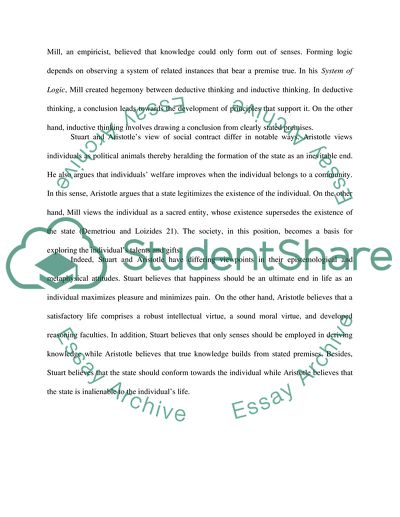John Stuart Mill and Aristotle's Viewpoints in Their Epistemological Essay - 6. Retrieved from https://studentshare.org/philosophy/1640570-please-give-me-a-suitable-topic-of-this-essay-thank-you
John Stuart Mill and Aristotle'S Viewpoints in Their Epistemological Essay - 6. https://studentshare.org/philosophy/1640570-please-give-me-a-suitable-topic-of-this-essay-thank-you.


